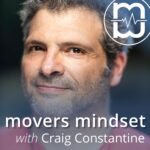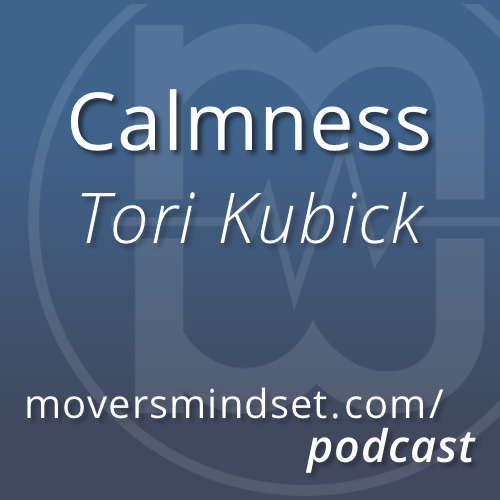
How does practicing contortion influence mental calmness and overall life perspective?
Contortion is not just about physical flexibility but a mental practice of finding calmness.
“The only way to do it, was to be calm. You can’t— It’s physically impossible to do it anxious. There’s just no way. So you have to [find] calmness or… or nothing.” ~ Tori Kubick (11:33)
The conversation explores the transformative aspects of contortion, emphasizing how the practice fosters mental calmness alongside physical flexibility. Tori shares how she transitioned into contortion as an adult and describes it as a discipline that connects mind and body. She highlights the need for internal calmness, which allows practitioners to push beyond perceived physical and mental limits.
Other topics include the parallels between contortion and problem-solving in other movement practices, such as parkour and aerial arts. Tori discusses the importance of strength complementing flexibility and explains how contortion helps practitioners discover new ways to navigate challenges, both physically and mentally. The conversation also touches on the introverted nature of many contortionists and the rare sense of community they share.
Takeaways
Courage in movement — The willingness to challenge oneself physically and mentally is essential for growth.
Calmness as a necessity — Contortion requires a deep state of calmness to achieve its intricate movements.
Physical and mental synergy — Practicing contortion merges physical effort with mental focus.
Adapting perspectives — Observing challenges from different angles can reveal solutions.
Strength paired with flexibility — Building both attributes in balance leads to greater movement capacity.
Impact on everyday life — Lessons from contortion apply to real-world challenges like stress management.
Shared practices — Contortion creates connections among its niche community of practitioners.
Misconceptions about contortion — Many people wrongly view it as solely innate or purely aesthetic.
Resources
Tori’s Instagram @con_tori_tion — Features content related to her contortion practice and performances.
Tori’s Website — Contains her TED talk, writings on movement, and event details.
Move NYC — An event hosted by The Movement Creative for exploring movement practices.
(Written with help from Chat-GPT.)
— Hello👋 I’m Craig Constantine.
In the Movers Mindset podcast, I talk with movement enthusiasts to learn who they are, what they do, and why they do it. I’m interested in the nature and philosophy of movement and in exploring themes like independence, self-direction, and human excellence. My interests color each conversation and provide some structure to Movers Mindset. But since I like to take the scenic route, every conversation ends up going somewhere unique.
The purpose of Movers Mindset is to create and share great conversations with movement enthusiasts. Each conversation feeds my insatiable curiosity, but I share them to turn on a light for someone else, to inspire them, or to give them their next question.
I appreciate your time and attention, and I don’t take it for granted.
— Thank you!
Want more? Subscribe to the email list for weekly updates—new episodes and archive highlights delivered to your inbox.
I invite you to cultivate a meaningful life—through presence, not pursuit. You can learn more about me and all my projects at, https://craigconstantine.com.
If you like what I’m doing through Movers Mindset, learn more about becoming a patron.
ɕ
